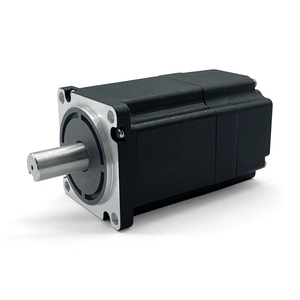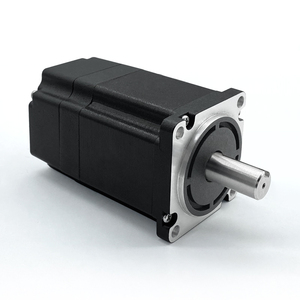
All categories
Featured selections
Trade Assurance
Buyer Central
Help Center
Get the app
Become a supplier

(2897 products available)








































The brushless motor hall sensor is a critical component in modern electromechanical systems. This sensor plays a pivotal role in the operation of brushless DC (BLDC) motors, providing essential feedback on the rotor's position to the motor controller. By detecting magnetic fields, these sensors can accurately determine the timing for power application to the motor windings, thus ensuring efficient operation.
BLDC motors with hall sensors are utilized in a variety of applications, from electric vehicles to industrial machinery. The hall effect sensor for BLDC motor is designed to cater to different operational environments, which means they come in various forms, such as sealed units for harsh conditions or compact models for space-constrained applications. The speed control of BLDC motor using hall sensor is a common application, allowing for precise management of motor speed in real-time.
The materials used in brushless motor hall effect sensors are chosen for their magnetic properties and durability. Typically, these sensors are constructed from semiconductor materials that respond to magnetic fields. The features of these sensors include their small size, which allows them to be integrated into the motor assembly without significant alterations. Additionally, the hall effect sensor working in BLDC motor is known for its reliability and longevity, which is crucial for applications requiring consistent performance over time.
One of the main advantages of using a hall sensor in BLDC motors is the precision it brings to motor control. This precision leads to enhanced efficiency and reduced wear on the motor, as the timing of the electrical input can be finely tuned. Moreover, BLDC motor control without hall sensor is possible, but incorporating these sensors allows for better performance, especially in applications where load conditions frequently change.
Recent advancements have led to the development of BLDC motor controller with hall sensor technology that can operate in a wider range of temperatures and under more strenuous conditions. There is also a growing trend towards brushless motors without hall sensors, which use alternative methods for detecting rotor position, but the hall sensor remains a popular choice for its dependability and straightforward design.
When selecting a brushless motor hall sensor, it is important to consider the specific requirements of the application, such as the operating voltage, current capacity, and environmental resistance. The choice between a BLDC motor with hall sensor and a BLDC without hall sensor will largely depend on the desired balance between cost, complexity, and control precision.